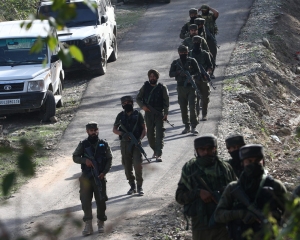Covaxin, a vaccine developed by Bharat Biotech, has demonstrated overall interim clinical efficacy of 78 per cent and 100 per cent efficacy against severe Covid-19, the Hyderabad-based company said on Wednesday announcing phase 3 interim analysis results of the vaccine.
The efficacy of Covaxin was little less at 78 per cent- than the 81 per cent reported in March. On Wednesday, Bharat Biotech, in a Press release, announced results from an interim analysis of its phase 3 trial. The efficacy against severe Covid-19 disease was 100 per cent, the company claimed, but that against protecting from asymptomatic Covid-19 infection was 78 per cent.
The analysis was on a data set of 127 Covid positive volunteers.
In a statement here, the company said the safety and efficacy results from the final analysis would be available in June, and the final report will be submitted to a peer-reviewed publication. “Based on the achievement of the success criteria, placebo recipients have now become eligible to receive two doses of Covaxin,” Bharat Biotech said in the statement.
Dr Balram Bhargava, Director General, Indian Council of Medical Research, said Covaxin works well against most variants of SARS-CoV-2. “These findings together consolidate the position of our indigenous vaccine in the global vaccine landscape.”
Dr Krishna Ella, Chairman & Managing Director, Bharat Biotech, said, “Efficacy against SARS-Cov-2 has been established. Covaxin has demonstrated an excellent safety record in human clinical trials and in usage under emergency use. Covaxin is now a global innovator vaccine derived from Research & Development from India. The efficacy data against severe Covid-19 and asymptomatic infections is highly significant, as this helps reduce hospitalizations and disease transmission, respectively.”
In the nationwide vaccination drive launched from January 26, so far around 11 million doses of Covaxin have been administered, far below the nearly 117 million doses of Covishield. Covaxin is a fully indigenous jab with the viral strain isolated at the ICMR-National Institute of Virology. Though it was granted emergency use authorisation in January, it was done without providing efficacy data.























